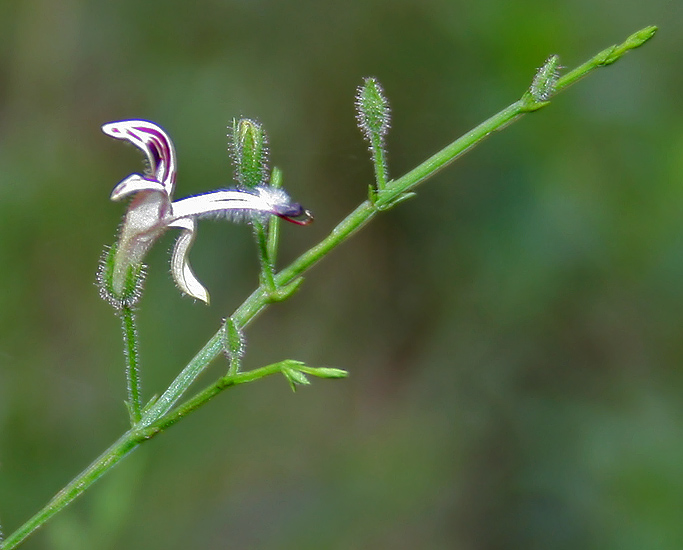Andrographis paniculata, commonly known as creat or green chiretta, is an annual herbaceous plant widely cultivated in Southern and Southeastern Asia, where it has been believed to be a treatment for bacterial infections and some diseases. Andrographolide is the major constituent extracted from the leaves of the plant
 Source: J.M.Garg - Own work, via Wikipedia
Source: J.M.Garg - Own work, via Wikipedia
Andrographolide is a labdane diterpenoid that has been isolated from the stem and leaves of Andrographis paniculata. Andrographolide is an extremely bitter substance.
Andrographolide has been studied for its effects on Alzheimer's Disease, Parkinson's disease, multiple sclerosis and stroke.
A new andrographolide-based terminal alkyne was synthesized in good yield from andrographolide by India's scientists. Andrographolide was obtained from a natural compound andrographolide , which in turn was isolated from the leaves of the plant .
Copper-catalyzed azide-alkyne cycloaddition reaction of alkyne with -sugars furnished a library of andrographolide-fastened triazolyl glycoconjugates in good yields. The structures of these semisynthetic andrographolide derivatives were established by Fourier transform infrared, NMR, and mass spectroscopy.
 The compounds were further evaluated against Alzheimer's disease using a scopolamine-induced memory impairment mice model. It was observed that antioxidant and anticholinesterase properties of these compounds contribute significantly toward their remarkable potential to improve cognitive functioning.
The compounds were further evaluated against Alzheimer's disease using a scopolamine-induced memory impairment mice model. It was observed that antioxidant and anticholinesterase properties of these compounds contribute significantly toward their remarkable potential to improve cognitive functioning.
